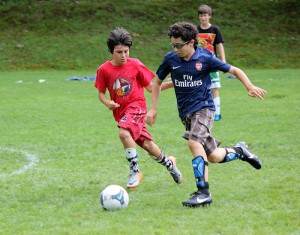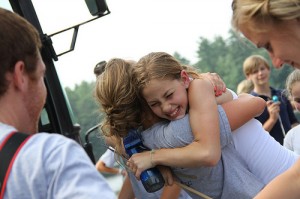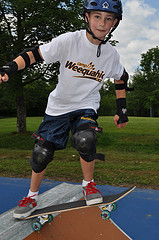 You’ve begun to think about summer camp, hope to have your prospects narrowed to a handful by the first of the year, but are struggling with how far you should expand your search area for potential camps. How far is too far?
You’ve begun to think about summer camp, hope to have your prospects narrowed to a handful by the first of the year, but are struggling with how far you should expand your search area for potential camps. How far is too far?
The “right” answer to this question is very different for many families and depends a great deal on what type of experience they want their children to have. Of course, when choosing a summer camp, one must consider obvious points, such as transportation to and from camp. Most summer camps also have visiting days for parents, typically in the middle of the summer for full season camps and at the closing of a session for session camps, making it necessary for parents to take into account their own prospective travel plans. Will you attend Visiting Day? How much time do you have to travel to and from Visiting Day? How long do you want to spend visiting the area around your child’s camp? These answers are different for many families.
Many parents opt to send their children to summer camp within a few hours of home. This makes it convenient for them  make Visiting Day plans (an easy day trip) and gives them the peace of mind of knowing that their children are within reach, should an emergency arise. Many camps also provide transportation for campers to and from camp from pick up spots within a few hour radius of camp, which virtually relieves parents of having to plan how their children will travel to and from camp.
make Visiting Day plans (an easy day trip) and gives them the peace of mind of knowing that their children are within reach, should an emergency arise. Many camps also provide transportation for campers to and from camp from pick up spots within a few hour radius of camp, which virtually relieves parents of having to plan how their children will travel to and from camp.
Traditional American summer camps, though, are increasingly receiving the attention of international parents who want to introduce their children to a global culture and give them the opportunity to gain some hands on English speaking experience. Says the mother of Nicholas, a Camp Weequahic international camper, regarding the decision to send a child overseas to summer camp, ““Each kid is different…each mum is different …” For these parents, finding the right summer camp is less about distance and more about how they feel a camp’s atmosphere will enhance their children’s lives. Their priority is to look for a summer camp that will give their children a good dose of American culture and the provide them to make friends from other nations and backgrounds. Nicholas’s mother emphasized that she, “did not want to send Nicolas to the United States just to meet other French guys!!!”
 For these families, finding the right American summer camp “fit” is paramount to travel. They want their children to experience the iconic traditional American summer camp. Nicholas spent a summer gaining independence and confidence in his English skills and acquired a host of new friends in his summer camp family.
For these families, finding the right American summer camp “fit” is paramount to travel. They want their children to experience the iconic traditional American summer camp. Nicholas spent a summer gaining independence and confidence in his English skills and acquired a host of new friends in his summer camp family.
The appeal of atmosphere over distance isn’t one strictly exhibited on the international scene, however. Many American parents are drawn to the idyllic and scenic setting of New England and the Poconos of Northeast Pennsylvania…the mountains, the trees, the lakes, the streams, the rivers, the seasons. Undoubtedly, the campuses of New England and Northeast Pennsylvania summer camps are among the most beautiful in the U.S. Many camps in New England and Northeast Pennsylvania are also among the most reputable in the country as well, and, as the birthplace of the traditional full summer session, the majority of the country’s full summer residential camps are located there. For those parents who want their children to experience a full summer of camping, New England and Northeast Pennsylvania are often the obvious choices, regardless of distance. America’s Finest Summer Camps draw campers from as far away as California, Florida, Illinois, Colorado, and many other states.
traditional full summer session, the majority of the country’s full summer residential camps are located there. For those parents who want their children to experience a full summer of camping, New England and Northeast Pennsylvania are often the obvious choices, regardless of distance. America’s Finest Summer Camps draw campers from as far away as California, Florida, Illinois, Colorado, and many other states.
For those parents who opt for camps more than a few hours from home, there is often little need to worry about the safety of their children while traveling. Many camps in New England and Northeast Pennsylvania offer chaperoned flights from such popular destinations as Florida, California, Illinois, and Colorado and, at the very least, will personally meet your children at the airport, escort them to camp, and put them back on the plane at the end of the summer. American summer camps understand that in 2011, they’re catering to a global environment, and are fully prepared to make accommodations to do so.

 570-798-9831
570-798-9831